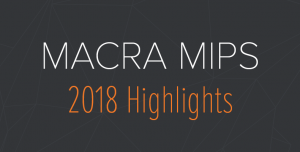Congress is seeking to slow federal efforts to hold providers accountable for saving Medicare money under the Merit-based Incentive Payment System (MIPS).
While MIPS rewards or penalizes providers based on their performance, including reducing Medicare costs, the healthcare industry has claimed it was moving too fast and didn’t give them time to learn the program’s provisions.
This year, cost-cutting will account for 10% of a provider’s MIPS score. That would jump to 30% next year. But buried deep in the continuing resolution which passed the House 245-182 Tuesday, was language that proposed giving the CMS the choice to keep cost-cutting at 10% of their MIPS score through 2021. The House bill would also block them from ever raising cost-cutting to more than 30% of providers’ scores. The Senate bill contains the same proposal. “We believe that significant work is still needed to risk adjust cost measures for socio-demographic factors and patient complexity and to determine appropriate attribution methods for these measures,” said Gayle Lee, director of healthcare affairs at the Association of American Medical Colleges.
Many physicians are not yet prepared for the significant changes that the MIPS program requires and need more time to learn under the effort before cost-cutting becomes a major portion of their MIPS score. “This change will give the agency more time to perfect their cost methodology and test newly developed episode-based cost measures, and give providers more time to adjust their practice,” said Derek Brandt, senior congressional affairs representative for the American Academy of Neurology.
Congress also addressed another industry concern by proposing that MIPS not judge providers based on how often they are prescribing drugs under Medicare Part B.
Last fall, the CMS announced it was planning to make this change to MIPS scoring starting this year. The change could have led to reimbursement penalties or rewards as high as 16% for some providers, according to Avalere. “Certain specialists administer more Part B drugs than others and, therefore, may be exposed to significant financial risk and payment swings year-over-year,” John Feore, director at Avalere, said in an analysis.
Part B drugs tend to be intravenous medications that are administered in clinical settings to some of the most vulnerable patients in Medicare, including those that have cancer, macular degeneration, hypertension and rheumatoid arthritis.
“We believe this policy could make it more difficult for physicians and other healthcare providers, particularly those in small practices and in rural settings, to administer Part B medications in their communities, creating a dire patient access issue,” according to a letter sent to Congress late last month by a coalition of medical societies.
 Download our newest one-page MIPS Highlights for Year 2 guide.
Download our newest one-page MIPS Highlights for Year 2 guide.
Courtesy of Virgil Dickson, Modern Healthcare, February 7, 2018.





